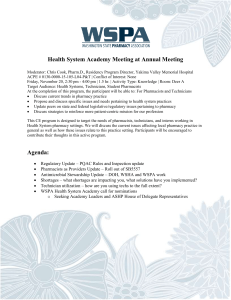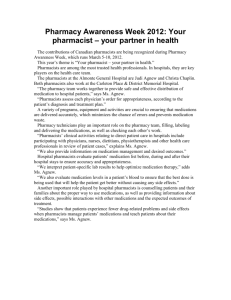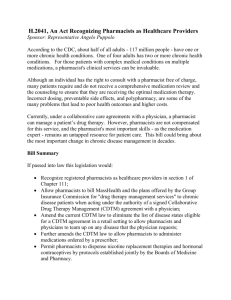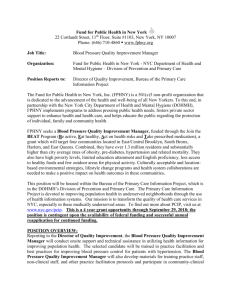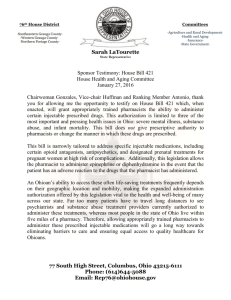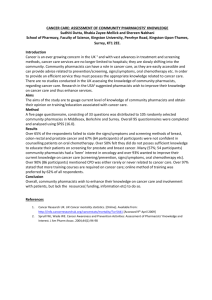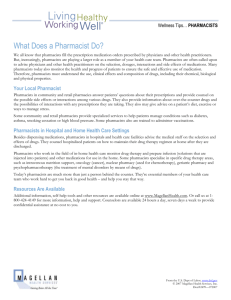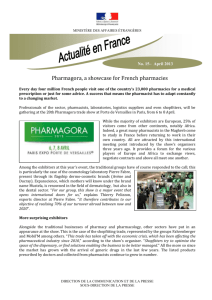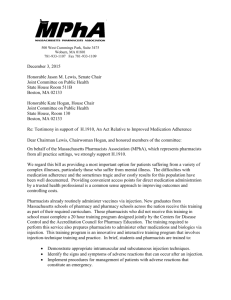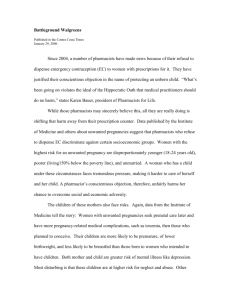Critical Thinking Skills Pharmacists Need - Rutgers APhA-ASP
advertisement
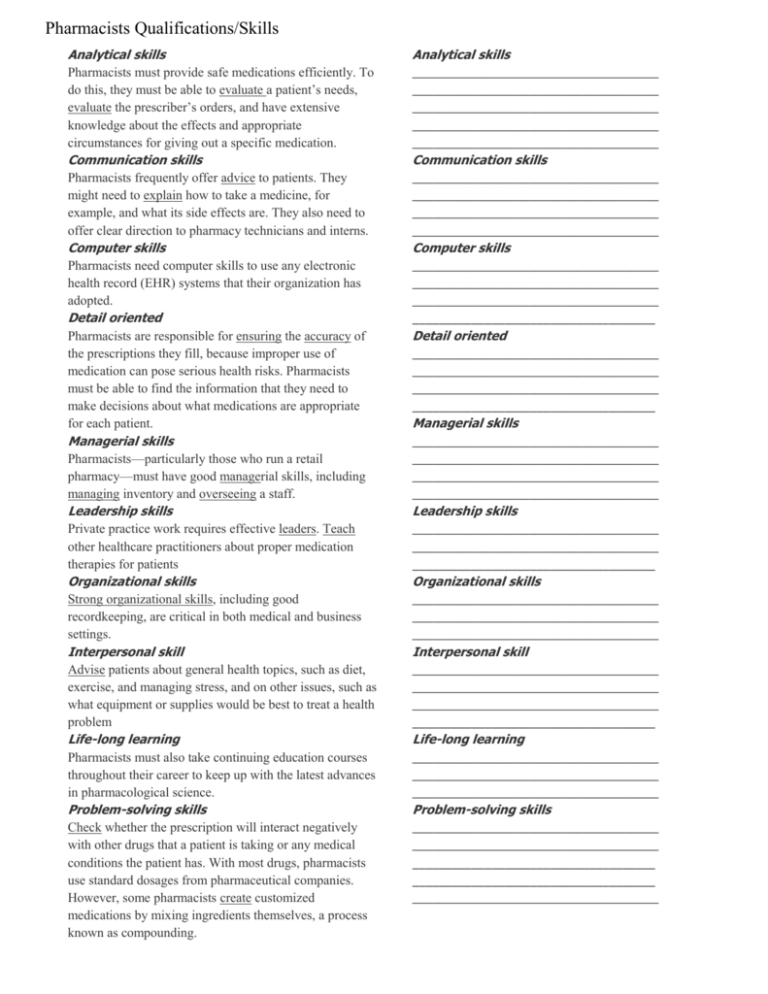
Pharmacists Qualifications/Skills Analytical skills Pharmacists must provide safe medications efficiently. To do this, they must be able to evaluate a patient’s needs, evaluate the prescriber’s orders, and have extensive knowledge about the effects and appropriate circumstances for giving out a specific medication. Communication skills Pharmacists frequently offer advice to patients. They might need to explain how to take a medicine, for example, and what its side effects are. They also need to offer clear direction to pharmacy technicians and interns. Computer skills Pharmacists need computer skills to use any electronic health record (EHR) systems that their organization has adopted. Detail oriented Pharmacists are responsible for ensuring the accuracy of the prescriptions they fill, because improper use of medication can pose serious health risks. Pharmacists must be able to find the information that they need to make decisions about what medications are appropriate for each patient. Managerial skills Pharmacists—particularly those who run a retail pharmacy—must have good managerial skills, including managing inventory and overseeing a staff. Leadership skills Private practice work requires effective leaders. Teach other healthcare practitioners about proper medication therapies for patients Organizational skills Strong organizational skills, including good recordkeeping, are critical in both medical and business settings. Interpersonal skill Advise patients about general health topics, such as diet, exercise, and managing stress, and on other issues, such as what equipment or supplies would be best to treat a health problem Life-long learning Pharmacists must also take continuing education courses throughout their career to keep up with the latest advances in pharmacological science. Problem-solving skills Check whether the prescription will interact negatively with other drugs that a patient is taking or any medical conditions the patient has. With most drugs, pharmacists use standard dosages from pharmaceutical companies. However, some pharmacists create customized medications by mixing ingredients themselves, a process known as compounding. Analytical skills ____________________________________ ____________________________________ ____________________________________ ____________________________________ ____________________________________ Communication skills ____________________________________ ____________________________________ ____________________________________ ____________________________________ Computer skills ____________________________________ ____________________________________ ____________________________________ _____________________________________ Detail oriented ____________________________________ ____________________________________ ____________________________________ _____________________________________ Managerial skills ____________________________________ ____________________________________ ____________________________________ ____________________________________ Leadership skills ____________________________________ ____________________________________ _____________________________________ Organizational skills ____________________________________ ____________________________________ ____________________________________ Interpersonal skill ____________________________________ ____________________________________ ____________________________________ _____________________________________ Life-long learning ____________________________________ ____________________________________ ____________________________________ Problem-solving skills ____________________________________ ____________________________________ _____________________________________ _____________________________________ ____________________________________
